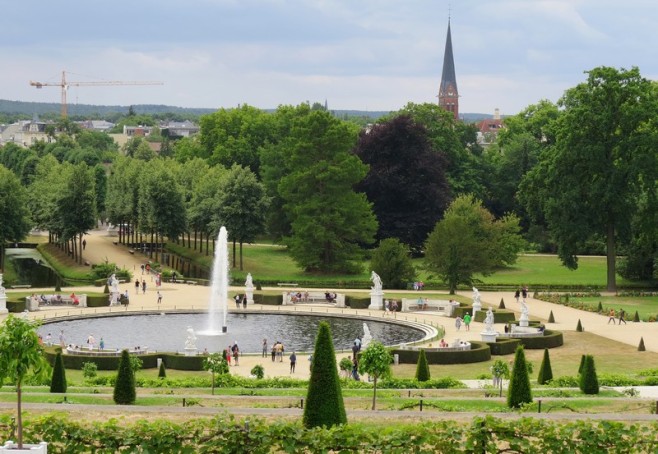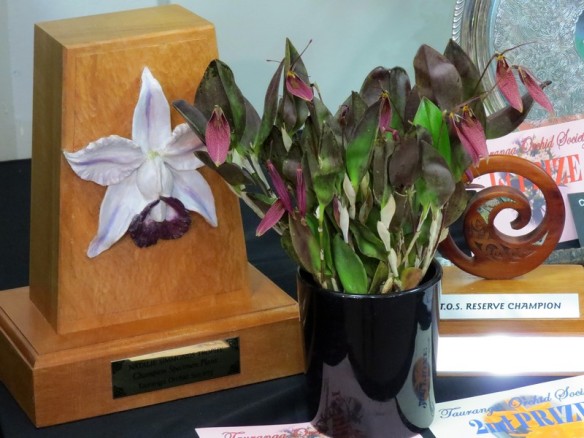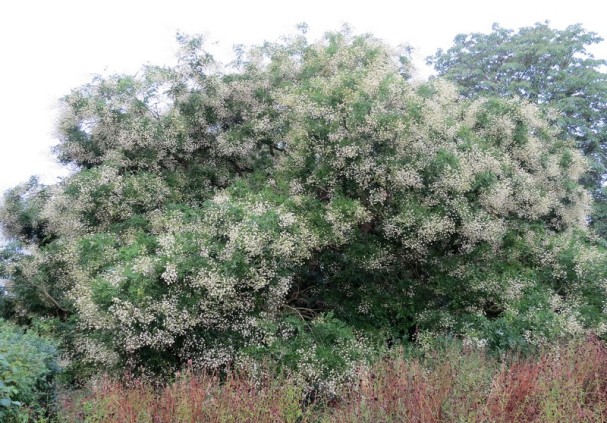One of the stops on my recent trip to Europe was Sanssouci Palace, near Potsdam in Germany, home to Frederick the Great who in 1744 had a terraced garden built to grow plums, figs and grapes – and, once he saw the view, adding a large summer residence.

Glass ‘doors’ help heat up the fig trees planted against a south-facing terrace wall. Photo: Sandra Simpson
The name Sanssouci means ‘without a care’ and the yellow-walled palace, one attraction within a large park that includes several other gardens and historic buildings, is only one room wide and fully intended as a retreat from the pomp and circumstance of court.
Frederick the Great (1712-86) ruled Prussia for 46 years, the longest of any Hohenzollern king, and was an accomplished musician/composer (his flute is on display at Sanssouci), philosopher and soldier – and was the first world ruler to recognise the United States as a nation.

The frontage of Sanssouci facing the terrace gardens. Photo: Sandra Simpson
Frederick was the third son of 14 children, the older male infants dying at their baptisms when the heavy crown was put on their tiny heads (fortunately, they figured it out, but still, two!) Frederick hated his father with a passion, and for good reason – after being hauled back from England with his best friend (they’d run off), dear old Dad sentenced Frederick to death, commuting it at the last moment in favour of his friend. And, of course, Frederick was made to watch the beheading!

The view from the top terrace towards the city of Potsdam. A grape vine runs along the length of the terrace fence but our guide said the wine made here was never good. Photo: Sandra Simpson
In among all his other interests, Frederick was something of a horticulturalist – as well as the plums, figs and grapes, he also had greenhouses at Sanssouci for melons and pineapples. But his biggest contribution to the lives of Germans was encouraging the cultivation of potatoes (kartoffel) to try and halt the famines caused by bad cereal harvests – between 1708 and 1711, more than 40% of the population in East Prussia starved to death.
However, farmers were initially less than enthusiastic – after all, potatoes were animal fodder. It didn’t help that they tried to eat the leaves or eat the potatoes raw! Frederick persevered, describing them as “royal vegetables”, ordering them cooked for state banquets and making a great production of enjoying them, and planting large fields round Sanssouci. Legend has it he put an armed guard on the fields, deliberately relaxed at night to allow locals to steal the “treasure”. Finally, on March 24, 1756 Frederick ordered that everybody had to plant potatoes wherever there was room.

Frederick the Great at the age of 68, painted by Anton Graff. Image: Wikipedia
Why this interest in the humble spud? Frederick was a military strategy genius and understood that a well-nourished army would be superior to any other, while a well-fed population would be less prone to revolt. And so it proved.
Favourite German potato dishes today include potato pancakes, potato salads and potato dumplings – and of course the tuber also comes chipped, baked, roasted, boiled, mashed ….

The grave of Fredrich der Grosse (Frederick the Great) at Sanssouci. Photo: Sandra Simpson
Frederick’s nephew, who succeeded him, decided the late king should be buried next to his father in Potsdam Church, despite Frederick’s express wish to be buried at Sanssouci. In his last will in 1752, the king who gave refuge to French philosopher Voltaire said: “I have lived as a philosopher and I wish to be buried as such, without pomp and circumstance or the slightest ceremony. Let me be taken by the light of a lantern with no cortege to Sanssouci and buried simply on the righthand side of the high terrace.” He died at Sanssouci in his armchair, aged 74.
Finally, in 1991 – 205 years after his death – that wish was carried out. Frederick the Great now lies alongside his beloved 11 whippets (who all have name stones too) and in a touching tribute Germans come and lay potatoes on the grave of der Kartoffelkönig (Potato King).



























